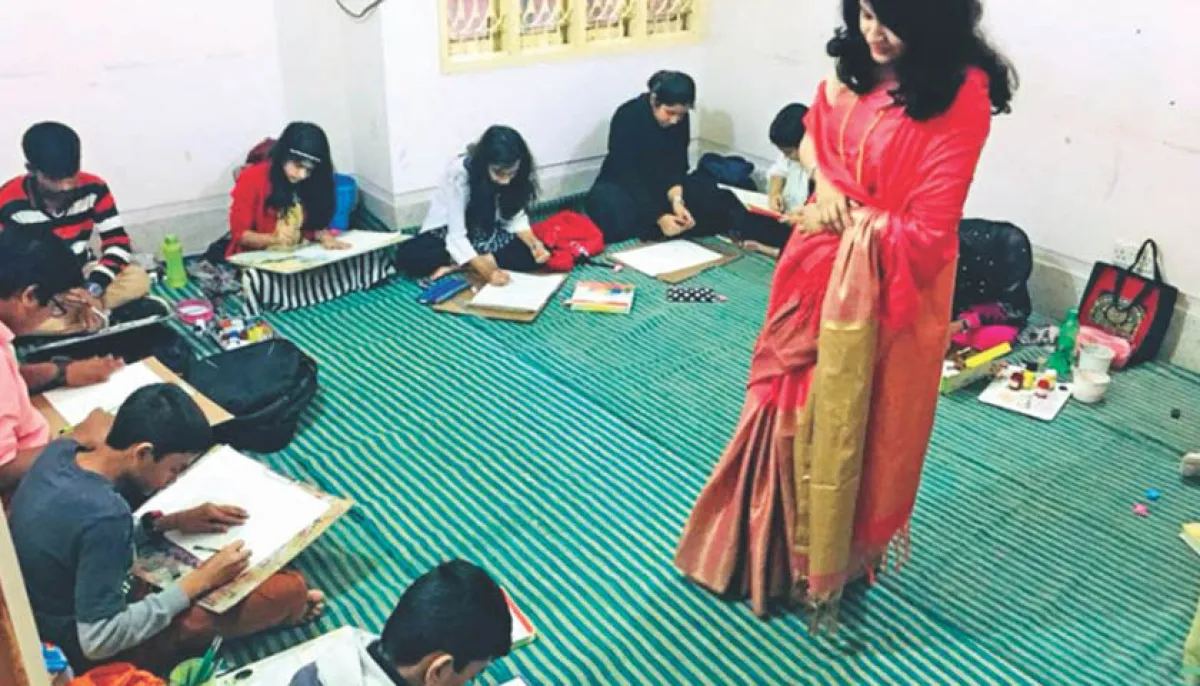
Teachers lack the capacity to employ effective learning methods, particularly at the pre-primary and secondary education level, as only three percent of teachers received specialised training in pre-primary education, said a study by Educo Bangladesh.
Moreover, only one or two teachers in secondary schools of semi-urban to rural areas received training on generating and delivering multimedia materials effectively, the study noted.
Also, around 60 percent of teachers said they did not participate in any mental or physical well-being sessions, it added.
The findings of the study, titled "Child Rights and Wellbeing Situational Analysis", were unveiled in a ceremony held at a hotel in the capital yesterday.
The primary data of the study was collected through interviews and focus group discussions with children, parents, teachers, government stakeholders, and experts from 11 districts -- Rajshahi, Thakurgaon, Mymensingh, Gazipur, Dhaka, Shariatpur, Barishal, Barguna, Satkhira, Moulvibazar, and Cox's Bazar.
The research also used secondary data from national surveys, reports, academic journals, and databases.
The findings were presented by Mohammad Adnan Rahman, portfolio manager of Inspira Advisory and Consulting Limited.
He highlighted major issues faced by children in areas such as education, protection, and well-being, such as child marriage and child labour.
Around 88 percent of children aged one to 14 years were subjected to either physical punishment or psychological aggression by their caregivers, the study shared.
According to the study, around 42 percent of students dropped out while transitioning to secondary education from primary education due to academic struggles, financial constraints, and the need to earn money often leading to a lack of motivation.
Due to the lack of motivation, most children do not have a happy time at school, it said.
Furthermore, 50 percent of children did not participate in extracurricular activities, while 75 percent of parents did not know about the ambitions of their children, it added.
Most parents who participated in the study thought that their children's opinions were not valuable.
Children with disabilities and children from indigenous communities are particularly falling behind, the study notes.
It said around 60 percent of children with disabilities do not attend school, which is attributed to societal and personal obstacles, alongside infrastructural limitations. Lack of awareness and motivation among parents also play a massive role here.
Meanwhile, tailored teaching methods are not used while teaching children from indigenous communities who do not use Bangla as their first language, which creates a massive obstacle.
The study also made several recommendations to enhance the quality of education, recommending the development of scientific learning materials for early childhood, while localising learning materials and teacher training.
The study also advocated for increasing awareness among parents regarding children's rights and well-being.
It also recommended designing a Child-Centered Social Support (CCSS) programme for vulnerable children and establishing School Counselling Systems (SCS) in schools
The need for systemic reform and collaboration among government bodies, NGOs, and communities was also emphasised.
At the event, Abdur Rahim, director of programme at Educo Bangladesh, emphasised creating a safer and more equitable world for all children in Bangladesh.
Speaking as chief guest, Mamtaz Ahmed, senior secretary of Ministry of Women and Children Affairs, said, "We have the responsibility to ensure every child in Bangladesh grows up safe, healthy, and empowered."
Anwar Hossain, director general of NGO Affairs Bureau, was also present as special guest.
Source: the daily star
